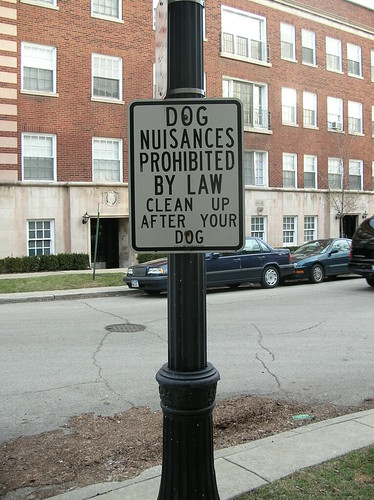I’m glad I waited a while to post about Kathy Sierra’s unfortunate situation; a vast sea of people expressed their solidarity with Kathy, Shelley sized up the situation with the wisdom and perspective that typify her, and Frank, Jeneane, and Chris have responded, and Allan seems to have closed up shop. The mysterious “Joe” has left comments here and there. I had glanced at the two sites in question, what, about a week ago, saw nothing interesting and several things that irked me, and moved on. I didn’t notice any death threats, or any close approximations thereof, but I wasn’t looking for them.
To begin with the obvious, no one should have to cope with death threats , whether private ones in anonymous emails (about the height of creepiness) or public — and, granted the popular culture’s predilection for highlighting (and selling) the exhilarating voyeurism of women-in-jeopardy, I see ample reason for people to exercise special care to steer clear of sending messages that intensify any woman’s already-heightened sense of being the object of someone’s pathology. It’s wrong, and it’s dumb. It’s not near the fine line between stupid and clever. It crossed that line, stomped on it, scuffed it out, and kept going (and not in the “clever” direction).
After one establishes that nobody ought to threaten people’s lives, a premise I whole-heartedly endorse, people seem to have run in a great many other directions with this incident. Some commenters have interposed themselves among Kathy’s very many admirers to say, in essence, “If you don’t like it, don’t go on the internet.” I suppose that might work for some people — “If you don’t want us to brutalize you, don’t come to our neighborhood, or if you come, make sure you’ve got us out-gunned” — but it falls considerably short of the kind of ideal community life, short even of “minimally functional community life” in my book. Kathy shouldn’t have to choose between writing a blog with death threats and vanishing from Blogaria.
Some of Kathy’s defenders seemed a little hysterical, though. A great many people asserted their certainty that they knew what kind of person would participate in the MeanKids and BobsYerUncle sites, and why. That sort of presumption pushes my buttons, and not simply because I know the people Kathy named in connection with her death threats; I persistently push my students to articulate “How would you know that? What evidence do you have for that claims?” because I observe so many people taking precipitous action on the basis of conclusions to which they’ve jumped far in advance of any evidence. I see it in students’ and scholars’ biblical interpretation, where readers just know what must have happened; I see it in church conflict, where people just know what others really mean, and why they profess the claims they do; I see it in politics, where prominent figures commit vast resources and numerous human lives to projects on the basis of unsubstantiated intuitions. What I don’t see is any sign that this presumed knowledge makes the world a better place.
So in response to very real pathological threats (explicit in the emails), Kathy sensibly explained in a very public way (a) why she wasn’t going to Etech and (b) whom she held responsible. I take it that this is one of the positive uses of the Net: to make a visible, public record of the situation, so that any possible assailant would know that Kathy and Bert, law enforcement authorities, and pretty much the whole Net-reading world, knew about what was going on. Lots of light on the obscure goings-on.
That transition from anonymous threats in email to calling-out specific people (who — so far as I know — have no direct connection with the murderous threat) changes the picture. Granted, without question, that Kathy shouldn’t have to put up with death threats, I’m uneasy about her targeting others for whom there isn’t a demonstrable connection to the specific death threats. There’s a difference between tasteless, hurtful tripe (on one hand) and credible death threats (on the other); although the two may be congruent, I need to know more about the connection before I assent to connecting these particular dots.
In this way, anonymity cuts more directions than one: It enables a mysterious assailant to terrify Kathy, but it also provides the grounds for Kathy suggesting that Frank, Chris, Jeneane, and Allan are complicit with a would-be murderer. That’s a pretty serious allegation; she has interpellated them as co-conspirators. That wouldn’t fit with what I otherwise know of them, but more important, I don’t see evidence for that charge. Again, crudity that’s congruent with death threats may be worth condemning, but it’s not the same as participating in those threats. And since very few people on the Net are as anonymous as they think they are, we can expect that there is light to be shed on precisely who was threatening Kathy.
Compare [reports about] the sites in question with other websites, those that cultivate calumnious derogation of political figures, or that use tropes of sexual violence to the purpose of satire. I can propose distinctions that would categorize some as vile and dangerous, others as puerile and hurtful, others as scathing but just; so can you, and our assessments are virtually guaranteed to differ. In such perilous circumstances, distinctions and the reasoning that grounds them make all the difference in the world. Accusations that efface distinctions spread the damage around, but they don’t remedy anything, and often enough they take a bad scene and make it a lot worse.
All these dimensions show, yet again, that whatever else is true, there’s no magic barrier that separates the Net from Real Life. Whether in flesh or in pixels, we’re continuously taking part in a venture with the highest stakes, in a medium with an exceptionally long memory and no guarantees of anonymity. What we do, we do in public even if we hold a domino in front of our features — the slandering, threatening, stalking, bullying and other gestures we make online had better be gestures whose consequences we stand by.


